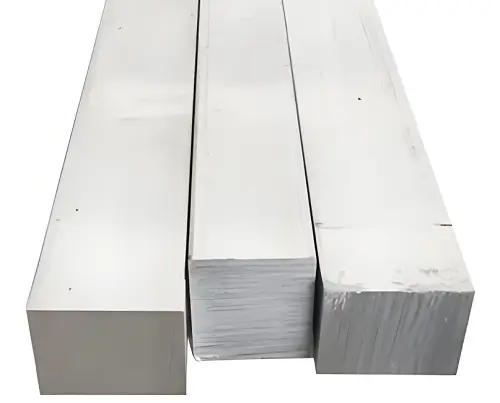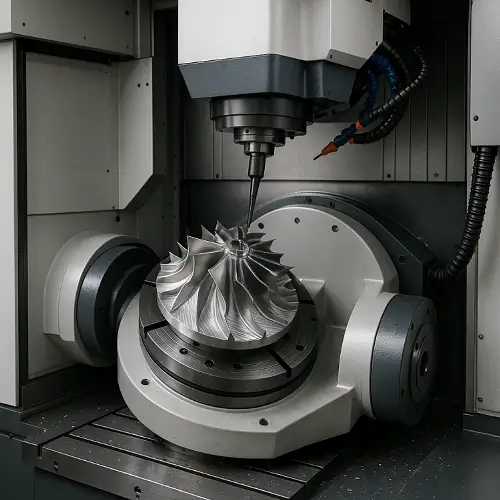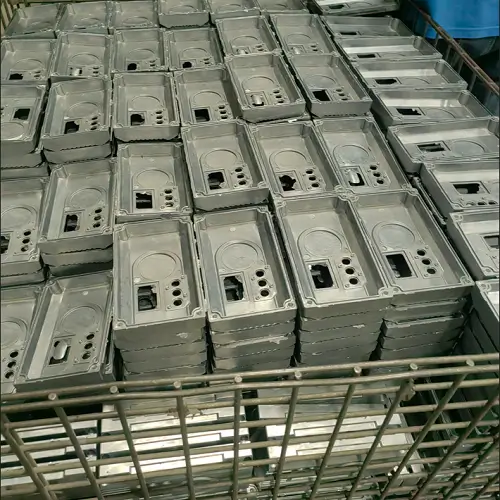6061 vs 7075 are among the most commonly used aluminum alloys in CNC machining. Both offer excellent mechanical properties and machinability, but serve different roles in engineering applications. Selecting the right grade depends on performance demands, cost targets, and manufacturing priorities. JeekRapid provides CNC machining services for both 6061 vs 7075 aluminum, supporting any order volume—from one-off prototypes to full-scale production.

Chemical Composition and Mechanical Properties of 6061 vs 7075
While both 6061 vs 7075 are heat-treatable alloys, they belong to different series. 6061 is part of the 6xxx series, alloyed mainly with magnesium and silicon. 7075 belongs to the 7xxx series, featuring higher levels of zinc and magnesium.
| Property | 6061-T6 | 7075-T6 |
|---|---|---|
| Primary Alloying Elements | Mg, Si | Zn, Mg |
| Ultimate Tensile Strength | ~290 MPa | ~570 MPa |
| Yield Strength | ~240 MPa | ~500 MPa |
| Brinell Hardness | ~95 | ~150 |
| Density (g/cm³) | 2.70 | 2.81 |
| Elongation at Break | 12% | 11% |
7075 offers nearly twice the tensile strength of 6061 and significantly higher hardness, making it well-suited for structural components under high stress. 6061, while softer, provides better ductility and weldability, and is easier to form.
Machinability Comparison of 6061 vs 7075
Both alloys perform well under CNC machining, but their behavior differs in practice.
6061 is easier to machine. It generates less heat, causes minimal tool wear, and supports higher feed rates. These characteristics make 6061 ideal for rapid prototyping and cost-sensitive production. JeekRapid frequently recommends 6061 for general-purpose parts with standard tolerance requirements.
7075 places more demand on cutting tools due to its higher hardness and zinc content. Tool wear occurs more rapidly, requiring slower cutting speeds and optimized tool paths to maintain dimensional accuracy. For complex geometries or tight tolerances, JeekRapid employs advanced machining strategies and tooling to ensure consistent surface finish and precision with 7075 material.
Corrosion Resistance and Surface Finishing of 6061 vs 7075
6061 naturally resists corrosion, particularly in outdoor and marine environments. The alloy forms a stable oxide layer that protects against moisture and oxidation, often eliminating the need for secondary finishing.
7075, on the other hand, is more susceptible to corrosion, especially in humid or salt-rich conditions. Surface treatments like anodizing or chromate conversion are recommended to improve durability. JeekRapid offers a full range of surface finishing options, including Type II and Type III anodizing, bead blasting, and chemical conversion coatings.
Cost and Material Availability of 6061 vs 7075
6061 is one of the most cost-effective aluminum alloys. It is widely available, easy to source, and inexpensive both in raw material and processing. Shorter machining cycles and minimal tool wear contribute to lower per-part costs.
7075 is significantly more expensive—typically 1.5 to 2 times the cost of 6061—due to its alloy composition and more demanding processing. Additional costs include tool wear, longer machining times, and the need for surface finishing in most use cases. JeekRapid assists clients in balancing material performance with budget requirements when choosing between 6061 vs 7075.
Typical Applications of 6061 vs 7075
| Use Case | Preferred Alloy |
|---|---|
| Aerospace brackets and fixtures | 7075 |
| Consumer electronics housings | 6061 |
| Structural machine parts | 6061 |
| Firearms and defense hardware | 7075 |
| Motorsport components (e.g. suspension arms) | 7075 |
| Prototypes and test components | 6061 |
7075 is favored for parts that demand a high strength-to-weight ratio. 6061 remains the go-to alloy for parts requiring ease of machining, strong corrosion resistance, and mechanical durability.
How to Choose Between 6061 vs 7075
Material selection depends on part function, performance expectations, environmental exposure, and production priorities. When strength and weight savings are critical, 7075 is the better option. When cost efficiency, weldability, and faster machining matter more, 6061 offers excellent value.
JeekRapid offers precision machining for both alloys and provides technical support on material selection, finishing options, and DFM (design for manufacturability) insights. Whether the project calls for aerospace-grade strength or affordable prototypes, JeekRapid delivers high-quality aluminum parts at any scale.
CNC Aluminum Machining with JeekRapid
JeekRapid specializes in CNC machining of 6061 vs 7075 aluminum, providing:
Precision 3-, 4-, and 5-axis CNC machining (including over 20 five-axis machines)
Tolerances down to ±0.01 mm
Custom surface treatment options
Rapid prototyping and short lead times
Support for all order sizes—from one piece to full production runs
With deep experience in aluminum part manufacturing, JeekRapid ensures fast turnaround, reliable quality, and engineering-grade performance on every project.
FAQs
1. Which aluminum alloy is better for structural parts—6061 or 7075?
7075 offers higher strength and is often used in load-bearing applications. 6061 is easier to work with and more cost-effective for general structural parts.
2. Can 7075 aluminum be welded?
Welding 7075 is challenging and typically avoided due to reduced strength in the weld zone. 6061 offers better weldability.
3. Is anodizing required for 7075 parts?
In most cases, yes—especially for outdoor or corrosive environments. JeekRapid offers multiple finishing options for both alloys.
4. Which alloy is more suitable for prototyping?
6061 is generally preferred for prototypes due to its lower cost and easier machinability.
5. What’s the turnaround time for aluminum CNC parts?
Standard lead time ranges from 3–7 working days depending on complexity. JeekRapid also supports expedited production.
Get an Instant Quote
Need precision-machined aluminum parts? JeekRapid delivers both 6061 vs 7075 CNC components with fast lead times and reliable quality. Upload your CAD files today to receive a free quote and manufacturing feedback—no minimum order quantity required.


